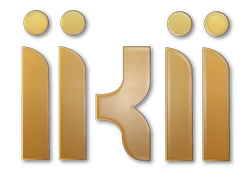Research Article
Engaging SDGs Agenda into a Design Thinking Module
More Detail
1 INTI International University2 Schneider Electric Singapore* Corresponding Author
Educational Innovations and Emerging Technologies, 4(2), 2024, 1-7, https://doi.org/10.35745/eiet2024v04.02.0001
Published: 10 June 2024
OPEN ACCESS 1657 Views 1515 Downloads
ABSTRACT
This paper explores the integration of Sustainable Development Goals (SDGs) education into a Design Thinking module within educational contexts. By merging the principles of Design Thinking with the global agenda of the SDGs, educators can empower students to address complex societal challenges creatively and responsibly. Through a structured framework, this paper outlines strategies for aligning SDGs with Design Thinking methodologies, incorporating case studies, promoting project-based learning, fostering collaboration, emphasizing ethical and sustainable design, facilitating presentation and reflection, and encouraging continued engagement. By adopting this approach, educators can equip students with the skills, mindset, and motivation needed to become agents of positive change in their communities and beyond.
CITATION (APA)
Leong, W. Y., Leong, Y. Z., & Leong, W. S. (2024). Engaging SDGs Agenda into a Design Thinking Module. Educational Innovations and Emerging Technologies, 4(2), 1-7. https://doi.org/10.35745/eiet2024v04.02.0001
REFERENCES
- Agusdinata, D.B. (2022). The role of universities in SDGs solution co-creation and implementation: a human-centered design and shared-action learning process. Sustain. Sci. 17, 1589–1604. https://doi.org/10.1007/s11625-022-01128-9
- Anonymous. (2015). United Nations. Transforming our world: The 2030 Agenda for Sustainable Development. Available online: https://sustainabledevelopment.un.org/post2015/transformingourworld/publication (Accessed on May 23, 2024).
- Anonymous. (2022). Case Studies - Achieving SDGs. Available online: https://www.sdgfund.org/case-studies (Accessed on May 23, 2024).
- Anonymous. (2020). Learning Brief: Design-Thinking to Accelerate Solutions for the Sustainable Development Goals. Available online: https://sdgs.un.org/sites/default/files/2020-09/Learning%20Brief_SDGs.pdf (Accessed on May 23, 2024).
- Anonymous. (2023). Why Businesses Should Use Design Thinking to Advance the Sustainable Development Goals. Available online: https://www.impactswell.com/blog/design-thinking-for-sdgs (Accessed on May 23, 2024).
- Anonymous. (2015). UNICEF Top 5: Design for UNICEF Challenge. Available online: https://www.unicef.org/innovation/design-challenge (Accessed on May 23, 2024).
- Brown, T., & Wyatt, J. (2010). Design thinking for social innovation. Stanford Social Innovation Review, 8(1), 30–35.
- Choo, K.W., Zakaria, R., Adnan, A., & Leong, W.Y. (2018). Various Techniques on Retrofitting for Earthquake Hazard Mitigation. International Journal of Engineering & Technology, 7, 167. https://doi.org.10.14419/ijet.v7i3.36.29101.
- Kumar, R., Kapil, A. K., Athavale, V., Leong,W.Y., & Touzene, A. (2023). The catalyst for clean and green energy using blockchain technology. In Modeling for Sustainable Development: A Multidisciplinary Approach. NewYork, NY, USA: Nova Science Publishers, Inc.
- Kolko, J. (2015). Design thinking comes of age. Harvard Business Review, 93(9), 66–71.
- Kumar, R., Jain, V., Leong, W.Y., & Teyarachakul, S. (2023). Convergence of IoT, Blockchain, and Computational Intelligence in Smart Cities. Boca Raton, FL, USA: CRC Press.
- Leong, W.Y., Leong, Y.Z., & Leong, W.S. (2024). Integrating SDGs Education into a Design thinking Module, 2024 IEEE 7th Eurasian Conference on Educational Innovation (IEEE ECEI 2024), 26–28 January, Bangkok, Thailand.
- Leong, W.Y (2023). Digital Technology for Asean Energy, Proceedings of the 2023 International Conference on Circuit Power and Computing Technologies (ICCPCT), Kollam, India, August 10–11; pp. 1480–1486, https://doi.org.10.1109/ICCPCT58313.2023.10244806.
- Leong, W.Y., Leong, Y.Z., & Leong, W.S. (2023). Human-Machine Interaction in Biomedical Manufacturing, Proceedings of the 2023 IEEE 5th Eurasia Conference on IOT, Communication and Engineering (ECICE), Yulin, Taiwan, October 27–29, pp.939–944, https://doi.org.10.1109/ECICE59523.2023.10383070.
- Leong, W.Y., Leong, Y.Z., & Leong, W.S. (2023). Smart Manufacturing Technology for Environmental, Social, and Governance (ESG) Sustainability, Proceedings of the 2023 IEEE 5th Eurasia Conference on IOT, Communication and Engineering (ECICE), Yulin, Taiwan, October 27–29; pp. 1–6. https://doi.org. 10.1109/ECICE59523.2023.10383150.
- Leong, W.Y., Heng, L.S., & Leong,Y.Z. (2023). Smart city initiatives in Malaysia and Southeast Asia, Proceedings of the 12th International Conference on Renewable Power Generation (RPG 2023). Shanghai, China; October 14–15, pp. 1143–1149.
- Leong, W.Y., Heng, L.S., & Leong,Y.Z. (2023e). Malaysia renewable energy policy and its impact on regional countries, 12th International Conference on Renewable Power Generation (RPG 2023). China. pp. 7–13, https://doi.org.10.1049/icp.2023.2114.
- Leong, W.Y., Leong, Y.Z., & Leong, W.S. (2024). The Impact of the Accreditation of Prior Experiential Learning (APEL) Programme in Malaysia, Proceedings of the 2024 IEEE 7th Eurasian Conference on Educational Innovation (IEEE ECEI 2024), Bangkok, Thailand, January 28–28.
- Leong, W.Y., Zhang, J.B., (2024c). Failure Analysis for Project-Based Learning (PBL) in Engineering. ASM Science Journal, 19, 2024, 1–12, https://doi.org/10.32802/asmscj.2023.1598.
- Mohankumar, P., Leong, W.Y. (2016). 3D Modelling with CT and MRI Images of a Scoliotic Vertebrae. Journal of Engineering Science and Technology, 11, 188–198.

 OPEN ACCESS
OPEN ACCESS

 The articles published in this journal are licensed under the CC-BY Creative Commons Attribution International License.
The articles published in this journal are licensed under the CC-BY Creative Commons Attribution International License.